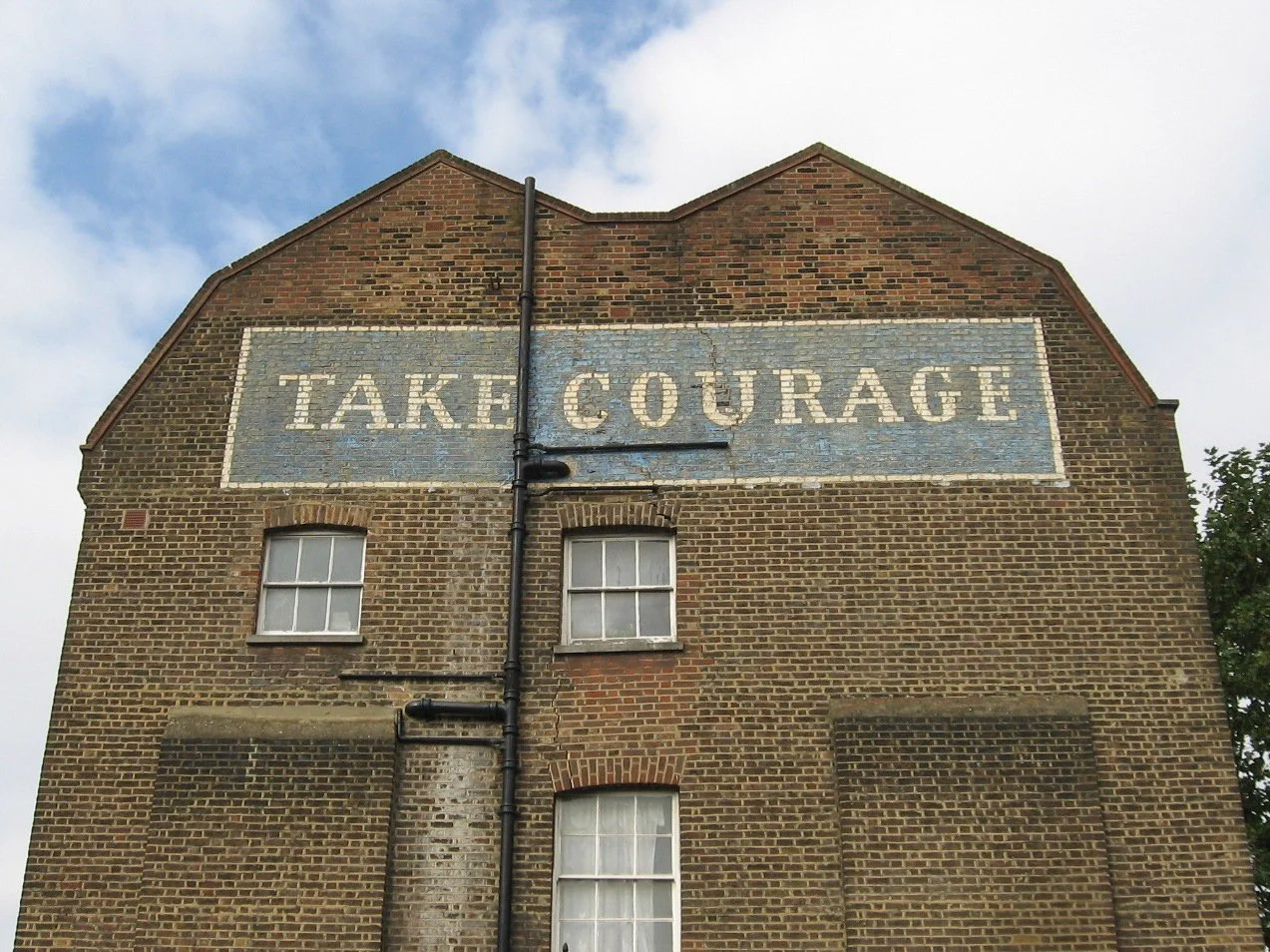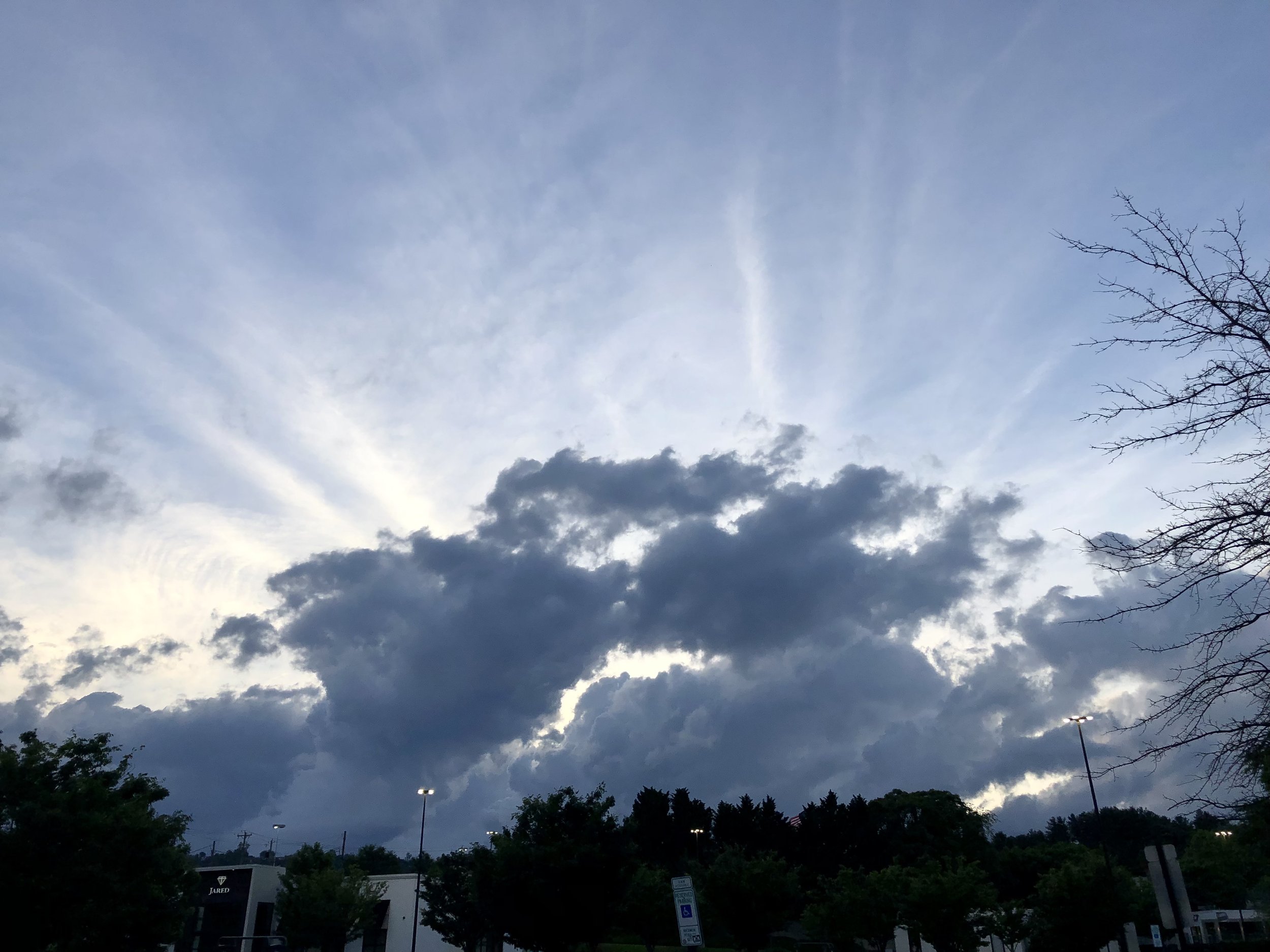Sometimes, good things trigger me. Receiving grace from an important person when I thought I fucked things up. Getting unexpected positive feedback on work I have done.
When I say "trigger," I don't mean set me off to act in explosive ways. I mean send my system into a state of dysregulation—clenching, overwhelm, panic, a swelling of tears. In the realm of mental health, a trigger is any stimulus that elicits an adverse physiological reaction. Being triggered is a visceral experience that is an echo of a protective pattern the body has formed in response to an event from the past. Sometimes that looks like defensiveness or rage; sometimes panic; sometimes entirely shutting down.
It is completely human (and important for survival!) for our bodies to respond in protective ways in the face of a threat. But what gives when our systems flare or shut down in the face of goodness? In the face of what we actually long to receive?
Our experiences in early childhood shape us. They create blueprints in our nervous systems that we carry for the rest of our lives—unless or until we consciously choose to repattern them (should they need it). Mental awareness of the foundational blueprint is essential here, while the repatterning ultimately happens through two primary pathways: healing relationships and somatic work.
The body likes what it knows, even if what it knows is actually harmful. We orient towards comfort; at a primal level, comfort is found in the familiar. If we grew up not being adequately attuned to, not having our physical and/or emotional needs met, having love and care be conditional, being parentified, or in an environment that was otherwise unstable, abusive, or unsafe, these dynamics are a resonant match for our systems. In adulthood, experiences and relational dynamics that are safe, respectful, consistent, attuned, and expansive will feel foreign to us on a nervous system level. And sometimes, we will get triggered by good things.
Love. Connection. Being seen. Being vulnerable. Being validated. Being met. Being chosen.
Having your boundary honored with ease when you're used to dismissiveness or a fight.
Being asked how you're feeling/what you need when you're used to being disregarded or not allowed to take up space.
Receiving a yes to a proposal, job application, or invitation you've extended when you're used to being rejected.
Receiving compassion after a misstep or infraction when you're used to retaliation.
Being told you're easy to love when your whole life, people have told or shown you otherwise.
We can long for these things with our whole hearts and our whole spirits, but until our systems can register and regard them as safe, we will not be able to choose and hold them in our lives.
The body is infinitely intelligent; everything it does is an effort to keep us safe. Before we develop consciousness of our histories, our traumas, and our bodies' self-protective responses, we will likely interpret getting triggered as a signal that the thing can’t be right, or we don't deserve it, and then will likely succumb to the self-protective and self-sabotaging mechanisms our system asserts because we don’t yet know a better way.
There is always a stage in the process of healing when the things we yearn for we don't actually have the capacity to receive, or to be. And, that is not the fate of your system forever. Through a multitude of micromoments in safe, loving relationships over time (including your relationship with yourself), you can stretch your system's capacity to let goodness in. And to let the outdated self-protective defenses out. And eventually, a new blueprint will emerge.
So, today, I leave you with these queries: what are the good things that don't feel safe to your system? That you're somehow wary of, distrust, or on some deep or subconscious level don't feel you deserve? How much can you invite your system to soften your defenses and show up, lean in when someone cares and is skillful enough to be there? Can you be with the droplets of love, large and small, well enough to let them integrate, to let them weave themselves through the thick web of not-enough-ness, too-much-ness, unworthiness, I-don’t-need-others-ness that was imprinted upon you when young—but was never indicative of truth, never yours to forever carry?
You don't need fixing.
I have spent much of my life wishing I were different than I am. Less sensitive. Less emotional. Less serious. Since my teenage years, these traits felt like they separated me from the majority of my peers. They made life feel unbearably painful and relationships exceedingly hard.
Over time, I began to crack myself open and let myself fall apart with the support of containers that could hold me, could accurately reflect the beauty and implicit rightness of everything I contain—spaces including therapy, yoga, meditation, astrology, ritual, and kindred mentors and friends. Slowly, my relationship with myself began to shift, and I grew able to meet these traits that seemed to cause me so much pain with compassion and tenderness. Eventually, I began to view and love them as gifts. This sensitivity, my system's motherboard, wired to notice everything—a beckoning pattern of light, a bug in the far corner of the room, the most subtle shift in someone's facial expression or tone or mood. My ability to so effortlessly attune—to my environment, to other people. My depth of feeling, inviting me into the fullest spectrum of the human emotional experience; this emotional fearlessness that gives others permission to crack open, too.
Even still, I struggle with myself sometimes. Parts of my psyche remain judgmental and self-incriminating. They experience situations in my life play out differently than I would like or hope, and blame myself for them. If only I could have held this relationship more lightly, could be more "chill." If only my attachment system were different. But I don't hold relationships lightly. And my attachment system isn't different.
Some of how we are is our personality. Some is our soul expressing itself. And a lot of it is our nervous system. These pieces are interwoven. The more we work with our nervous systems to address protective patterns, the more we can move through life in alignment with the highest expression of our personality, our values, our needs, our wants, our soul. And the better able we are to discern which is which.
In Sacred Circle for Girls last week, we talked about boundaries. It came up that it can sometimes feel impossible to assert a boundary for fear of hurting the other person's feelings. This is an infinitely intelligent self-protective mechanism; it is the nervous system saying, "I know how to keep myself safe." If upsetting a parent or primary caregiver in early childhood resulted in loss of love or safety (physical or emotional), our systems take in that information and integrate it into our foundational blueprint. As we grow, we find it difficult to assert ourselves or prioritize our needs over what we perceive another's needs/wants to be, because the potential of upsetting them does not feel safe at a subconscious and autonomic nervous system level.
Dynamics like this imprint within all of us and show up in our lives repeatedly until we heal the root of them. These loops may feel exceptionally painful for those of us who are sensitive. When we feel more, everything is amplified. When we think more complexly and deeply, we can be that much harder on ourselves. Especially when the same hurtful dynamics recur through different people, different scenarios over time. It can feel endlessly frustrating as we develop greater self-awareness and understanding of our needs and our values. This is not what I want, so why do I keep encountering it? Why can't I change?
Carl Jung said, "Until you make the unconscious conscious, it will direct your life and you will call it fate." The unconscious is as much about our psyche as it is about what imprinted itself into our nervous systems in our formative early life. Until you create safety and capacity within your nervous system, you will not be able to choose differently—even if you are aware of a pattern. It will still feel impossible to breathe through your system's instinct to shut down and open into vulnerability with someone, even if they have earned your trust. Or to soothe your system's primal fear of separation end a relationship that is not serving you—whether romantic, professional, etc. Or to honor your boundary over another person's comfort.
I have spent a lot of time thinking about what parts of how I am are rooted in wounds and what parts are innate—and don't need "fixing," even if they've felt like they've made life impossible, at times.
There are still moments when I feel so broken. When I believe I am too sensitive, too intense; when the depth and profundity of that which I seek feels impossible and wrong to want. And, in my regulated state, I know that those are not the parts that need fixing. There is no healing or changing or transforming to be done there; only loving. And honoring. And, alongside that, compassionately working with the wounds and nervous system wiring that get in the way of that embrace.


